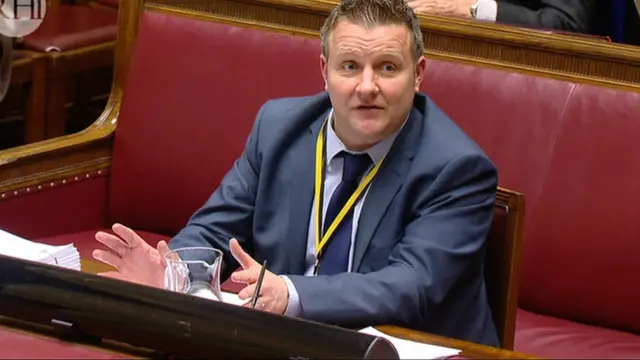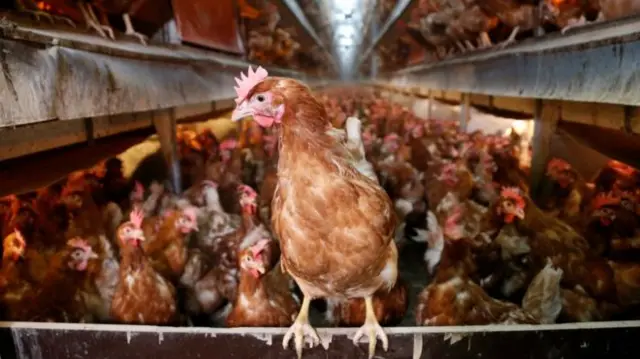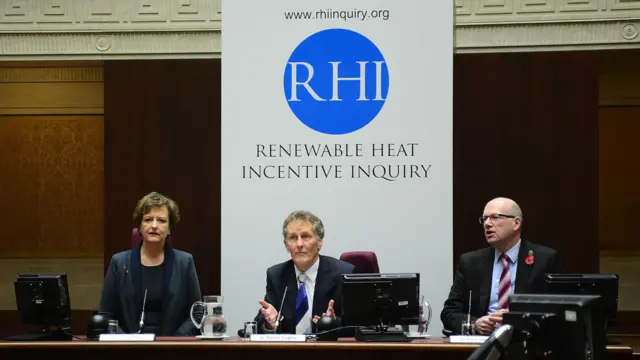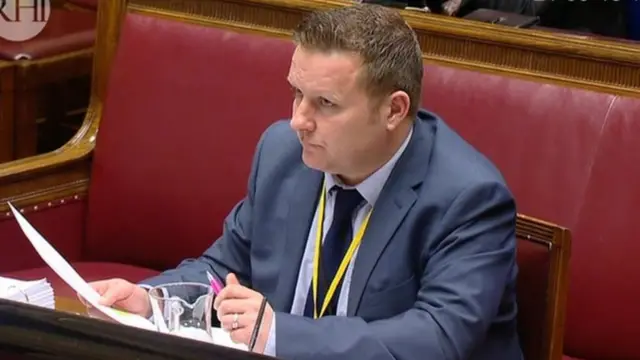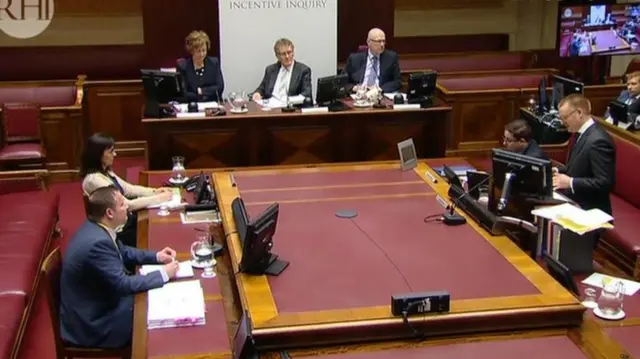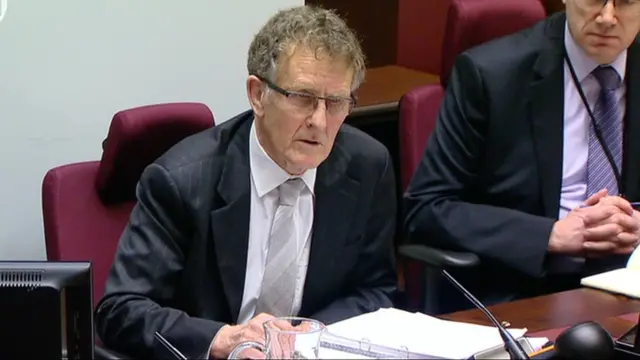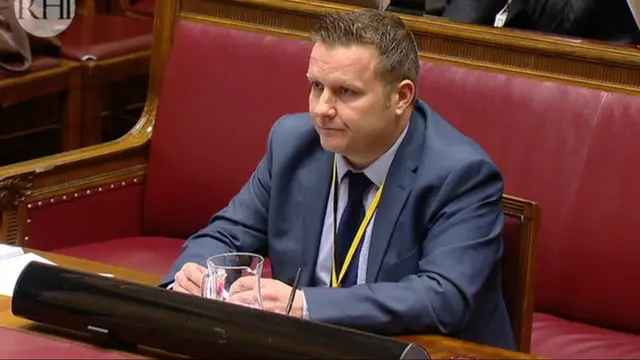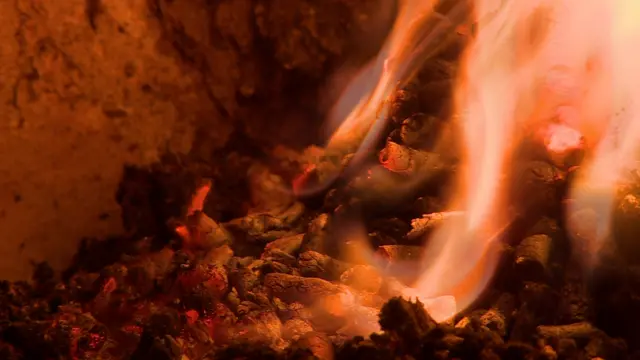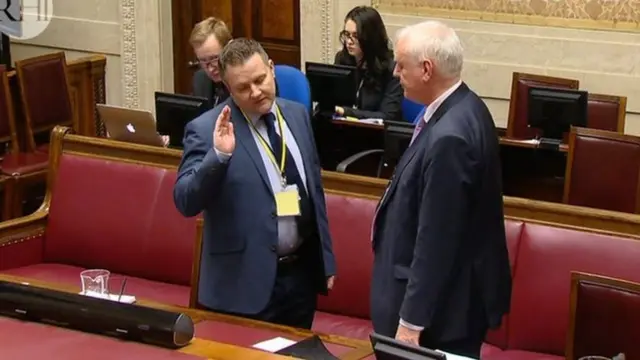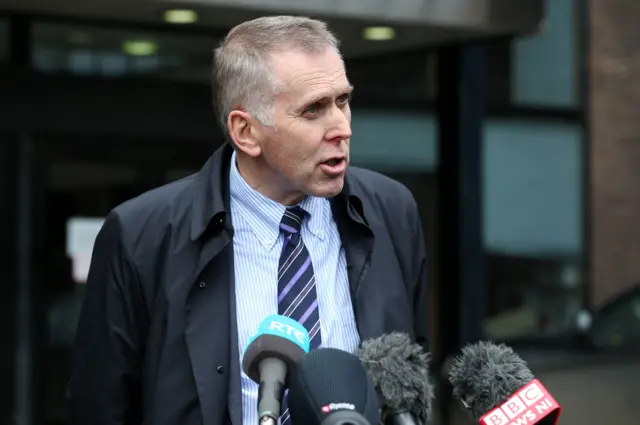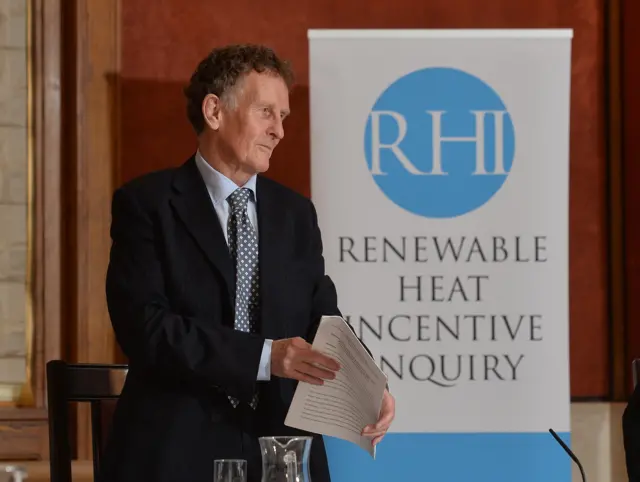That's all for today...published at 17:15 GMT 21 March 2018
It's not been the most revelatory day inside the Senate chamber, but events outside it have raised eyebrows.
After being accused in the House of Commons by the DUP's Ian Paisley of "putting words in the mouth of a witness", will inquiry chair Sir Patrick Coghlin have something to say when proceedings begin tomorrow?
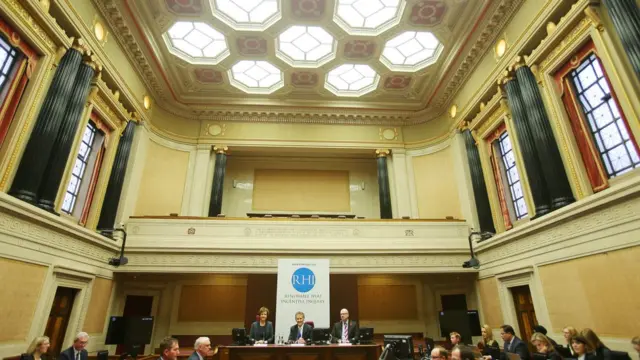 Image source, Press Eye
Image source, Press EyeOne thing we can be sure of is that we'll be hearing from Northern Ireland Civil Service boss David Sterling in the morning as he answers the final few questions for this part of the inquiry.
So, join us then and we'll keep you across the details.
Good evening for now!
